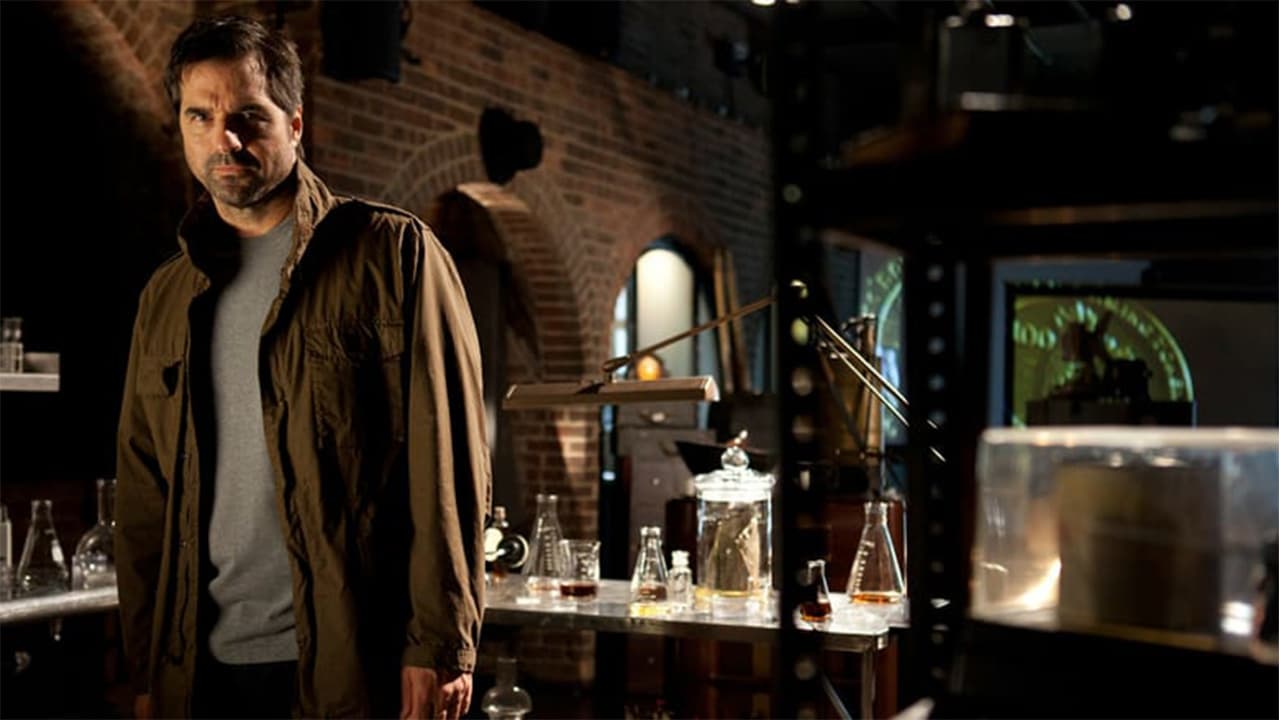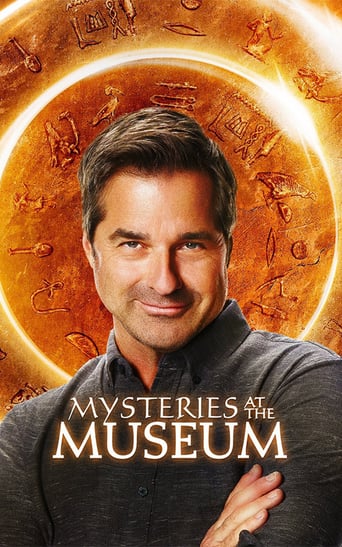

Highly Overrated But Still Good
... View MoreAbsolutely Fantastic
... View MoreIt isn't all that great, actually. Really cheesy and very predicable of how certain scenes are gonna turn play out. However, I guess that's the charm of it all, because I would consider this one of my guilty pleasures.
... View MoreThis movie tries so hard to be funny, yet it falls flat every time. Just another example of recycled ideas repackaged with women in an attempt to appeal to a certain audience.
... View MoreIt is a great idea for a TV show, I absolutely love the stories, however, they are very loosely based (at best) on the objects in the museums. For example, a medieval clay etching, depicting farming in ancient Britain, then goes on to tell a story on crop circles. Or the story of John Smith, a barber who once cut president so and so's hair, who used this phone, that is on show at the museum of telephones... It's kind of funny how irrelevant the objects actually are. It's also another very americanised program, in this I mean that the historical war accounts are somewhat pro-America, and twisted to paint their history in a favourable light. It's bias, annoying, and eyeroll inducing, because more often than not, there is much more to the story. Overall it is a good show, and worth watching if you love history.
... View MoreGreat show and where to visit when traveling. However, all the information is not always factual and at times misleading. Case in point, crop circles. The comments would have you believe that this was a hoax by two men armed with a rope and a length of 2x4.The fact are that anybody faintly aware of crops circles is that they have not been duplicated, thus far by any known means. Those who study crop circles would know at a glance they were man made. You need not to study crop circles to know two guys with a rope and a 2x4 could do hundreds of crop circles over night or the thousands that occur. Crop circles can be identified by the measured radiation they emit and also the stalk shafts and are bent at the nub (If you try to bend it there it would break not bend ) Strange how we are led to believe in a hoax or believe 'one hoax' explains the thousands of intricate crop circles that occur in many countries yearly.As a Canadian scientist who studied crop circles over the years ; " I do not know how they are created but they are not man made"
... View MoreThis is a great show. It is amazing what fascinating little nuggets of history they dig up. Some of the stories are so compelling I am continually amazed that they aren't more well known. Some of them would make great films. I will very often research the stories on my own to get more information. Usually, the portrayals are fairly accurate, although they do emphasize certain aspects and play down (or ignore) others for dramatic purposes. I usually DVR the show and watch it in bed, preparing to go to sleep. As fascinating as it is, conversely,it has a somnolent affect on me, and I usually have to re watch 2 or even 3 times to get through all of the stories. I think it is partly due to the reliable and unchanging rhythm of the show. they start out each entry the same way: setting the scene with the museum that holds the artifact that will introduce the related story, first mentioning some of the other museum holdings, then describing the physicality of the artifact in question. Then they tell the story with silent actors pantomiming the narration.The narration itself has its own certain conceits: then never use one word when three will do, and adjectives abound. They never use a simple word, when a fancy one exists. (It's never a book, It's and "ancient tome" . People don't die, they "succumb to injuries"). Another little conceit is the rhetorical question and the use of puns. For example, In the story of the Double Eagle balloon crossing of the Atlantic: "Will their "lofty" ambitions be fulfilled? Will the balloon rise to the occasion? Will a slave that worked as a seamstress trying to get confederate plans to the Union be able to "thread the needle" and sneak past guards? How did a brassiere "boost" a young mother's bank account?" I love it. It's amusing. Don Wildman, the host, is superb. He has a great tone, and conveys a sense of urgency, when called for, without getting all worked up. And always has this kind of amused inflection. Plus he is very easy on the eyes.Another thing that is part of the predictable comfortable rhythm is timing and flow. When they finish one story, they immediately start the next one, saving the commercial break until a crucial cliffhanger. After the commercial break, they briefly recap the story and proceed. This is good for fast forwarding through the commercials, or if you doze off during the story, you can get up to speed without having to rewind. I swear, it's the same pattern over and over. It's like waves crashing on a beach. Two other shows that are just as good are Mysteries of the Monument and Mysteries of the Castle.
... View MoreOn the episode about Mrs. Lincoln seeking a medium after her husband's death and getting a superimposed photo of her deceased husband standing behind her, the narrator said she had lost two sons, when in fact, she had lost three sons. One child died before they entered the white house. Her oldest, Robert, was her only surviving child. I enjoy this. Show immensely and my husband and I watch it as often as possible. I am doing a radio reading of our local history and we touch on the incident of Nubuo Fujita and his visits to Brookings, OR. How that came to be differs from the story on Mysteries of the Museum and what local history has recorded. I am just wondering if you actually visit the museum and get the information from them or if it is obtained somewhere else. The first story had wrong information, whereas the second story just had differing information.
... View More